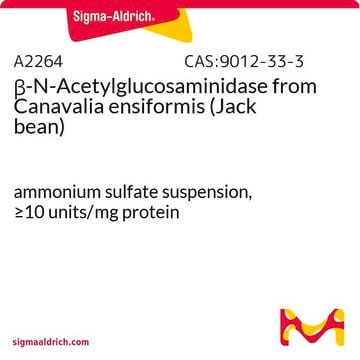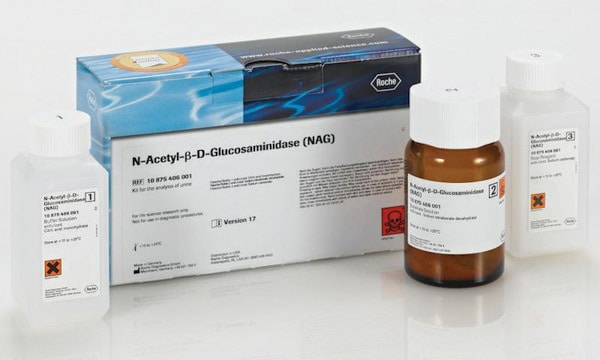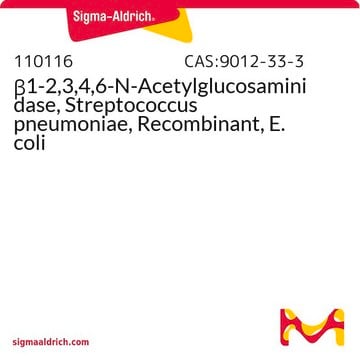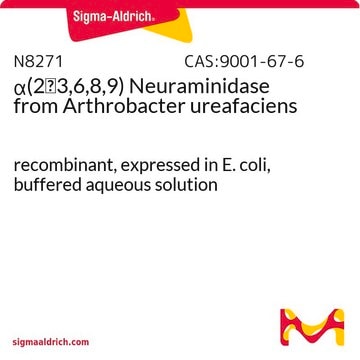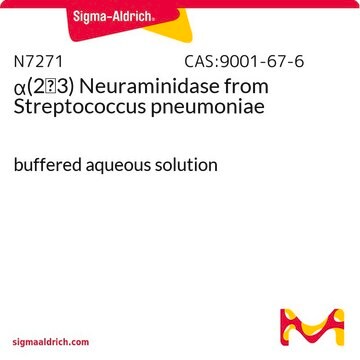A6805
β-N-Acetylglucosaminidase from Streptococcus pneumoniae
recombinant, expressed in E. coli, buffered aqueous solution
Synonym(s):
β-N-Acetyl-D-hexosaminide N-acetylhexosaminohydrolase, β-N-Acetylhexosaminidase
About This Item
Recommended Products
recombinant
expressed in E. coli
Quality Level
form
buffered aqueous solution
specific activity
≥80 units/mg protein
packaging
vial of ≥1.0 unit
foreign activity
β-galactosidase, α-mannosidase, α-fucosidase, neuraminidase, and proteases, none detected (Enzyme is expressed in glycosidase-free host.)
shipped in
wet ice
storage temp.
2-8°C
Gene Information
Streptococcus pneumoniae R6 ... lytB(934406)
Application
Biochem/physiol Actions
Unit Definition
Physical form
inhibitor
Storage Class Code
10 - Combustible liquids
WGK
WGK 2
Flash Point(F)
Not applicable
Flash Point(C)
Not applicable
Certificates of Analysis (COA)
Search for Certificates of Analysis (COA) by entering the products Lot/Batch Number. Lot and Batch Numbers can be found on a product’s label following the words ‘Lot’ or ‘Batch’.
Already Own This Product?
Find documentation for the products that you have recently purchased in the Document Library.
Customers Also Viewed
Articles
Learn about O-linked glycan strategies, O-glycosidase actions, how to remove sialic acid residues, β-Elimination, and O-glycan modifications.
Learn about O-linked glycan strategies, O-glycosidase actions, how to remove sialic acid residues, β-Elimination, and O-glycan modifications.
Learn about O-linked glycan strategies, O-glycosidase actions, how to remove sialic acid residues, β-Elimination, and O-glycan modifications.
Learn about O-linked glycan strategies, O-glycosidase actions, how to remove sialic acid residues, β-Elimination, and O-glycan modifications.
Our team of scientists has experience in all areas of research including Life Science, Material Science, Chemical Synthesis, Chromatography, Analytical and many others.
Contact Technical Service